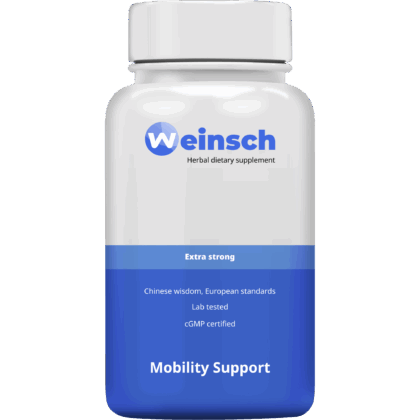Mu Gua (Chinese kweevrucht) is een warm, zuur kruid in de Traditionele Chinese Geneeskunde (TCM) dat bekend staat om het ontspannen van de pezen, het deblokkeren van kanalen en het transformeren van vocht. Het is afgeleid van de vrucht van Chaenomeles speciosa en wordt gewaardeerd voor het behandelen van spierkrampen, gewrichtsstijfheid en spasmen veroorzaakt door wind-damp obstructie. Mu Gua harmoniseert ook de maag en transformeert vocht, waardoor het nuttig is bij spijsverteringsproblemen zoals diarree en buikpijn door vochtophoping. De dubbele werking op de spieren en het spijsverteringsstelsel maakt het een belangrijk kruid voor zowel aandoeningen van het bewegingsapparaat als het maag-darmstelsel.
Functies en voordelen
Relaxes Sinews and Unblocks ChannelsEases stiffness, spasms, and cramping in the muscles and joints caused by wind-dampness.
Transforms Dampness and Improves DigestionHelps relieve abdominal pain, diarrhea, and poor appetite from damp accumulation in the middle burner.
Harmonizes the StomachAlleviates nausea, vomiting, and discomfort from digestive Qi stagnation.
Relieves Edema from DampnessSupports water metabolism to reduce swelling in damp-related conditions.
Indications (Who Can Benefit from It?)✔ Individuals with muscle cramps, spasms, or joint stiffness from wind-dampness.✔ People with diarrhea or digestive discomfort from damp accumulation.✔ Those with swelling or heaviness in the limbs from damp obstruction.✔ Patients with chronic muscle tension or post-exercise cramps.
Tongue & Pulse Diagnosis in TCMTongue: Thick, greasy coating, often white, indicating dampness.Pulse: Slippery or wiry, reflecting damp obstruction or constrained Qi.
Related TCM PatternsWind-Damp Obstructing the Channels – Causes stiffness, spasms, and swelling.Dampness in the Middle Burner – Produces diarrhea, bloating, and poor appetite.Liver-Spleen Disharmony – Leads to digestive discomfort with muscle tension.
Clinical Applications (For Reference Only)Muscle Cramps and Spasms – Relaxes sinews and improves flexibility.Joint Pain and Stiffness – Opens channels blocked by dampness.Digestive Upset – Reduces diarrhea and bloating from damp accumulation.Post-Exercise Recovery – Eases soreness and muscle tightness.
Common Herbal Formulas with Mu GuaOften combined with Du Huo and Sang Ji Sheng for wind-damp bi syndrome, or with Huo Xiang and Bai Zhu for dampness in the middle burner.
Precautions & ContraindicationsAvoid in cases of hyperacidity or stomach ulcers.Not suitable for Yin deficiency with heat signs.Use with caution in individuals with excessive dryness.
Lifestyle & Dietary Recommendations✔ Eat light, balanced meals and avoid greasy, heavy foods that contribute to dampness.✔ Include gentle stretching or mobility exercises to keep sinews relaxed.✔ Stay active to promote circulation in the muscles and joints.✔ Use warming soups or herbal teas to assist in dispelling dampness in cold weather.
ConclusionMu Gua (Chinese Quince Fruit) is a warm, damp-transforming herb in TCM that relaxes sinews, unblocks channels, and improves digestion. It is particularly effective for muscle cramps, joint stiffness, and digestive discomfort caused by dampness.
Gecertificeerde ingrediënten
Gratis verzending vanaf €49,95
Antwoord binnen 24 uur
Gecertificeerde ingrediënten
Gratis verzending vanaf €49,95
Antwoord binnen 24 uur

